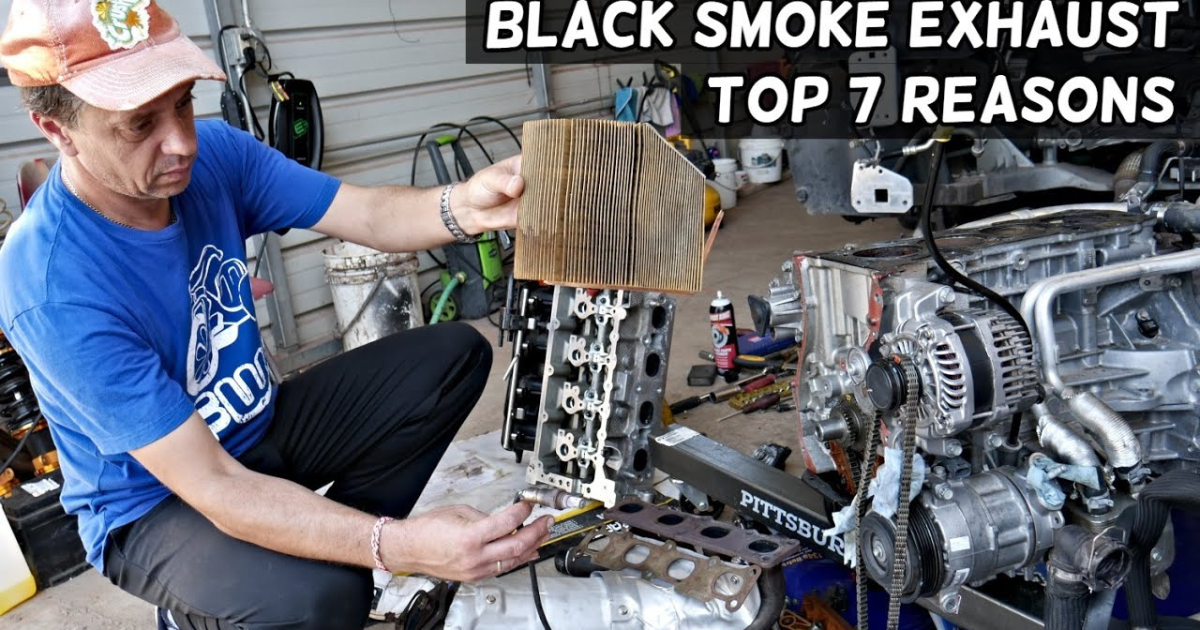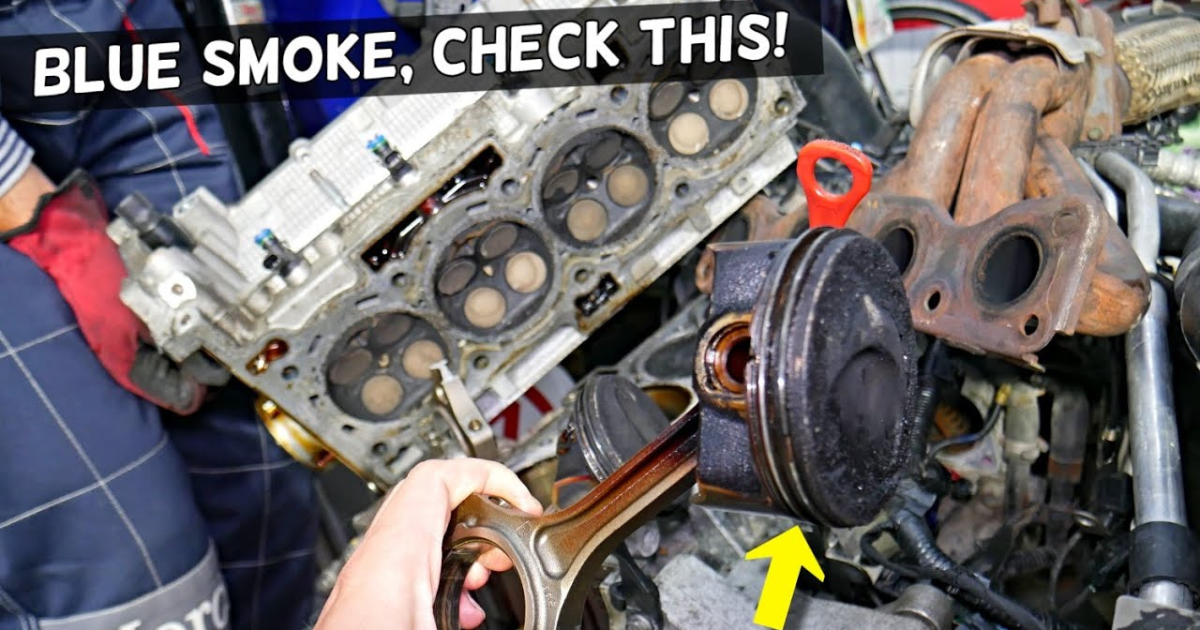Seeing black smoke coming out of your diesel engine’s exhaust pipe can be alarming. It is usually a sign that something is wrong with the engine’s combustion process. While it is normal for diesel engines to produce some black smoke during hard acceleration or under heavy load, excessive smoke is a cause for concern. In this article, we will discuss the common causes of black smoke from a diesel engine during hard acceleration and how to fix them.
Clogged Air Filter
A clogged air filter is one of the most common causes of black smoke from a diesel engine during hard acceleration. The air filter prevents dirt, debris, and other particles from entering the engine. Over time, it can become clogged, preventing the right amount of air from entering the engine. This imbalance in the air-to-fuel ratio leads to incomplete combustion, resulting in black smoke.
Solution: inspect the air filter and clean or replace it as needed.
Bad MAF Sensor
The mass airflow (MAF) sensor measures the amount of air entering the engine. If it is dirty or malfunctioning, it can send the wrong signal to the engine control module, resulting in too much fuel being injected into the engine. This excess fuel will not burn completely, causing black smoke to come out of the exhaust pipe.
Solution: clean or replace the MAF sensor.
Issues with the Fuel System
The fuel system, which includes the fuel pump, injector pump, and injector nozzles, can also cause black smoke from a diesel engine during hard acceleration. If any of these components are faulty or sending too much fuel into the engine, it can result in incomplete combustion and black smoke.
Solution: inspect the fuel system components and have a mechanic service or replace any faulty parts.
Dirty EGR Valve
The exhaust gas recirculation (EGR) valve helps to minimize the creation of harmful oxides of nitrogen by recirculating a precise amount of exhaust gas back into the engine. If the EGR valve is clogged with carbon deposits, it can cause fuel inefficiency, loss of power, and black smoke from the exhaust pipe.
Solution: clean or replace the EGR valve.
Faulty Turbocharger
The turbocharger increases engine power and torque by forcing more air into the engine. If it is not functioning properly, it can cause inadequate air supply, leading to incomplete combustion and black smoke.
Solution: replace the damaged parts or replace the turbocharger entirely.
Incorrect Engine Timing
Engine timing involves the synchronization of fuel injection and combustion processes within the engine. If the timing is off, it can alter the fuel injection process, leading to incomplete combustion and black smoke.
Solution: consult a mechanic who specializes in your car’s engine to check and correct the timing if necessary.
Conclusion
Black smoke from a diesel engine during hard acceleration is usually a sign of an imbalance in the air-to-fuel ratio. It can be caused by several factors, including a clogged air filter, a bad MAF sensor, issues with the fuel system, a dirty EGR valve, a faulty turbocharger, or incorrect engine timing. By identifying the root cause of the problem and taking the necessary steps to fix it, you can prevent further damage to your engine and reduce emissions.




